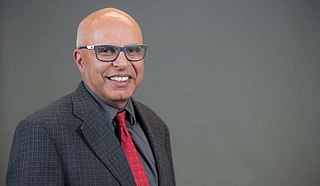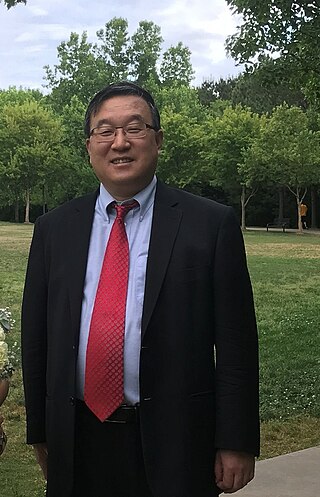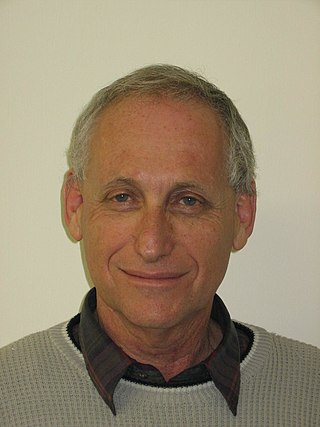Engineering management or Management Engineering is applied engineering. It is the application of engineering methods, tools, and techniques applied to business management systems. Engineering management is a career that brings together the technological problem-solving ability of engineering and the organizational, administrative, legal and planning abilities of management in order to oversee the operational performance of complex engineering-driven enterprises. Careers positions include engineering manager, project engineer, product engineer, service engineer, process engineer, equipment engineer, maintenance engineer, field engineer, technical sales engineer, quality and safety engineer. Universities offer bachelor degrees in engineering management. Programs cover courses such as engineering management, project management, operations management, logistics, supply chain management, engineering law, value engineering, quality control, quality assurance, six sigma, quality management, safety engineering, systems engineering, engineering leadership and ethics, accounting, applied engineering design, business statistics and calculus. A Master of Engineering Management (MEM) is sometimes compared to a Master of Business Administration (MBA) for professionals seeking a graduate degree as a qualifying credential for a career in engineering management.

Nancy Jane Currie-Gregg is an American engineer, United States Army officer and a NASA astronaut. Currie-Gregg has served in the United States Army for over 22 years and holds the rank of colonel. With NASA, she has participated in four space shuttle missions: STS-57, STS-70, STS-88, and STS-109, accruing 1,000 hours in space. She currently holds an appointment as a professor of practice in the Department of Industrial & Systems Engineering at Texas A&M University.
Kim Vicente is an inactive professor of Mechanical and Industrial Engineering at the University of Toronto. He was previously a researcher, teacher, and author in the field of human factors. He is best known for his two books: The Human Factor and Cognitive Work Analysis.
The Association of Technology, Management and Applied Engineering (ATMAE) is an association in the United States. ATMAE sets standards for academic program accreditation, personal certification and professional development for educators and industry professionals involved in integrating technology, leadership and design.
Engineering psychology, also known as Human Factors Engineering, is the science of human behavior and capability, applied to the design and operation of systems and technology. As an applied field of psychology and an interdisciplinary part of ergonomics, it aims to improve the relationships between people and machines by redesigning equipment, interactions, or the environment in which they take place. The work of an engineering psychologist is often described as making the relationship more "user-friendly."

The Edward E. Whitacre Jr. College of Engineering is the college of engineering at Texas Tech University in Lubbock, Texas. The engineering program has existed at Texas Tech University since 1925. Additionally, the Whitacre College of Engineering administers graduate engineering degree programs at the university's campus in Amarillo, Texas. Many of the college's degree programs are accredited by ABET. The Whitacre College of Engineering is the first and, presently, only school in the world to offer a doctor of philosophy degree in wind science and engineering.
The IEEE Systems, Man, and Cybernetics Society is a professional society of the IEEE. It aims "to serve the interests of its members and the community at large by promoting the theory, practice, and interdisciplinary aspects of systems science and engineering, human-machine systems, and cybernetics".

Industrial engineering is an engineering profession that is concerned with the optimization of complex processes, systems, or organizations by developing, improving and implementing integrated systems of people, money, knowledge, information and equipment. Industrial engineering is central to manufacturing operations.

The Indian Institution of Industrial Engineering (IIIE) is a non-profit organization and registered society for propagating the profession of Industrial Engineering in India. It was founded in 1957 and is a Registered Public Trust under the Bombay Public Trust Act, 1950.The headquarters is at Navi Mumbai. IIIE is a member organization of Engineering Council of India.

Ergonomics, also known as human factors or human factors engineering (HFE), is the application of psychological and physiological principles to the engineering and design of products, processes, and systems. Primary goals of human factors engineering are to reduce human error, increase productivity and system availability, and enhance safety, health and comfort with a specific focus on the interaction between the human and equipment.
Industrial and production engineering (IPE) is an interdisciplinary engineering discipline that includes manufacturing technology, engineering sciences, management science, and optimization of complex processes, systems, or organizations. It is concerned with the understanding and application of engineering procedures in manufacturing processes and production methods. Industrial engineering dates back all the way to the industrial revolution, initiated in 1700s by Sir Adam Smith, Henry Ford, Eli Whitney, Frank Gilbreth and Lilian Gilbreth, Henry Gantt, F.W. Taylor, etc. After the 1970s, industrial and production engineering developed worldwide and started to widely use automation and robotics. Industrial and production engineering includes three areas: Mechanical engineering, industrial engineering, and management science.
The New York and New Jersey Education and Research Center is one of eighteen Education and Research Centers funded by the National Institute for Occupational Safety and Health (NIOSH). The NYNJERC was established in 1978.

Rajan Batta is an American operations research scientist, and a SUNY Distinguished Professor at University at Buffalo. Batta earned his doctorate in Operations Research in 1984 from Massachusetts Institute of Technology and is a member of University at Buffalo faculty beginning in 1984. He also has had several administrative appointments, including Chair of the Department of Industrial and Systems Engineering, Interim Dean, and Associate Dean in various capacities of the School of Engineering and Applied Sciences (SEAS) at the University at Buffalo (UB). At present, he serves in the role of Associate Dean for Faculty Affairs and Recognition.

Dr. Erick Christopher Jones Sr. is an industrial engineer and professor at the University of Nevada at Reno. He is an expert in radio-frequency identification (RFID), quality engineering, and Lean Six Sigma. Jones was the program director of The National Science Foundation's (NSF) Engineering Research Centers. He is currently Chair of the Supply Chain Technology Committee of International Supply Chain Education Alliance's (ISCEA) International Standards Board (IISB) and Editor in Chief of the International Supply Chain Technology Journal (ISCTJ).
Laura Albert is a professor of Industrial and Systems Engineering at the University of Wisconsin-Madison in the College of Engineering. Albert is an expert in Operations Research, specializing solving and modeling discrete optimization problems arising from applications in homeland security, disaster management, emergency response, public services, and healthcare.

Jianjun "Jan" Shi is a Chinese-born American engineer and the Carolyn J. Stewart Chair and Professor in the H. Milton Stewart School of Industrial and Systems Engineering. He also works at the George W. Woodruff School of Mechanical Engineering at the Georgia Institute of Technology. He was elected as a member into the National Academy of Engineering in 2018 for the "development of data fusion-based quality methods and their implementation in multistage manufacturing systems".
Pınar Keskinocak is a Turkish-American systems engineer at the Georgia Institute of Technology, where she is William W. George Chair, Professor of Industrial and Systems Engineering, Director of the Center for Health and Humanitarian Systems, and College of Engineering ADVANCE Professor. Her research involves the application of operations research and management science to health care and supply-chain management. She is the former president of INFORMS.
Nadine Barbara Sarter is a German-American industrial engineer interested in multimodal interaction, touch user interfaces, aircraft cockpit controls, and the ergonomics of human-machine interfaces. She is Richard W. Pew Collegiate Professor of Industrial & Operations Engineering at the University of Michigan, where she directs the Center for Ergonomics and is also affiliated with the Robotics Institute and Department of Aerospace Engineering.

Daniel Gopher is a professor (Emeritus) of Cognitive psychology and Human Factors Engineering at the Faculty of Industrial Engineering and Management, Technion - Israel Institute of Technology. He held the Yigal Alon Chair for the Study of Humans at Work at the Technion. Gopher is a fellow of the Human Factors and Ergonomics Society, the Psychonomic Society and the International Ergonomics Association.
Joachim Meyer is Celia and Marcos Maus Professor for Data Sciences at the Department of Industrial Engineering at Tel-Aviv University. His work deals with human decisions in interactions with intelligent systems and he is a fellow of the Human Factors and Ergonomics Society.









